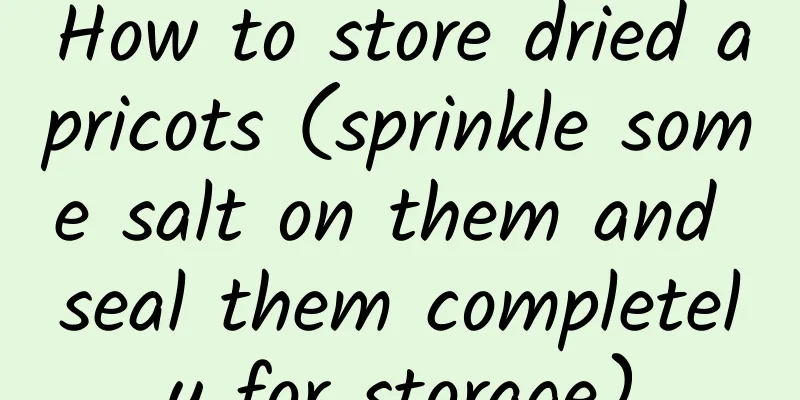"Food Truth" Series | Will eating persimmons cause kidney stones? Count the rumors related to persimmons

|
As soon as autumn arrives, sweet, soft and juicy persimmons become everyone's favorite fruit. Persimmons have a sweet taste and can be eaten fresh or made into persimmon cakes and persimmon wine, which has earned them a large number of loyal "fans". Persimmons are known as the auspicious fruit of autumn and have always been a fruit that people have great expectations for. Many people hope that eating them will bring them "good luck" and "double happiness". Will eating persimmons cause kidney stones? The richness of tannin is a typical feature of persimmons that is different from other fruits, and it is also the material basis for persimmons to have strong nutritional and health functions. Persimmon tannin has significant antioxidant, lipid-lowering, cholesterol-lowering, and snake venom-removing effects, but if it is not taken properly, it is very easy to produce gastric persimmon stones. Gastric stones are indigestible substances formed by food or foreign substances in the digestive tract. According to their composition, they are mainly divided into four categories: plant-derived gastric stones, hair-derived gastric stones, drug-derived gastric stones and mixed gastric stones. Gastric persimmon stone is a type of plant gastric stone, which is often formed by eating a lot of unripe persimmons. It is more common in elderly patients. It is generally believed that the tannin in persimmons is easy to combine with protein under the action of gastric acid to form a viscous colloid, which then condenses with plant fibers to form block stones. Although the tannin in persimmons has a good physiological effect, if it is consumed too much and there is a lot of protein in the stomach, it will cause the protein to form an insoluble complex and make pepsin inactive. In addition, there are other ingredients in persimmons, such as pectin and dietary fiber, which may cause indigestion and abdominal pain. If the persimmon stone is large and difficult to be discharged from the body, it will block the intestine and cause intestinal obstruction. Can the white frost on dried persimmons be eaten? Do I need to wash it off? The white frost on the outside of the dried persimmons is not a preservative applied by the merchants, but when the persimmons are dried into dried persimmons, the water gradually evaporates, and the glucose and fructose contained in the pulp gradually penetrate into the epidermis, condensing on the surface to form a white powder. It is safe to eat, no need to deliberately wash it off. Finally, I would like to remind everyone that when eating persimmons, you must choose sweet persimmons or persimmons that have been de-astringent. If you are not sure, peel off the skin and lick it. If there is no astringency, you can eat it. It is best for friends with kidney disease, stones, diabetes and other diseases to eat less. Healthy people should eat one per day. Author: Du Jiameng and Lan Haobo from Luoyang Normal University Review expert: He Jialiang, associate professor of the School of Food and Bioengineering, Henan University of Science and Technology |
<<: "Health from Food" Series | How to Eat to Stay Healthy in Autumn, Try Drinking Tea
>>: “Healthy through eating series” | Do you know the little-known facts about eating hotpot?
Recommend
Will my legs and feet swell if I'm pregnant with a boy?
Many people think that their legs and feet will o...
Can I drink red wine during my period?
Some female friends like to drink alcohol normall...
What are the common female reproductive diseases?
There are many kinds of female reproductive organ...
What does gynecology ppt check
Some women undergo gynecological examinations dur...
What should pregnant women eat when they have both qi and blood deficiency?
Women are most likely to suffer from deficiency o...
Can women have sex during menstruation?
Many married or conjugal women have experienced t...
What is anovulatory menstruation?
Women's menstruation is beneficial to their h...
Can I have sex when I am 8 weeks pregnant?
The eighth week of pregnancy is the early stage o...
"The King of Cancer" Why is pancreatic cancer so dangerous?
According to the Chinese Center for Disease Contr...
Picture of lower belly
When the elderly see a pregnant woman, they alway...
What fruits are good for dysmenorrhea?
Dysmenorrhea can be said to be a problem that wom...
Why is the fetal movement always on the right side?
Baby movement is a very strange thing. Especially...
What to do when you have back pain during menstruation
It is very easy for female friends to experience ...
What to do if a pregnant woman has acid reflux
During pregnancy, pregnant women's stomachs w...
What are the types of vaginal bleeding?
The vagina is an important reproductive organ of ...









